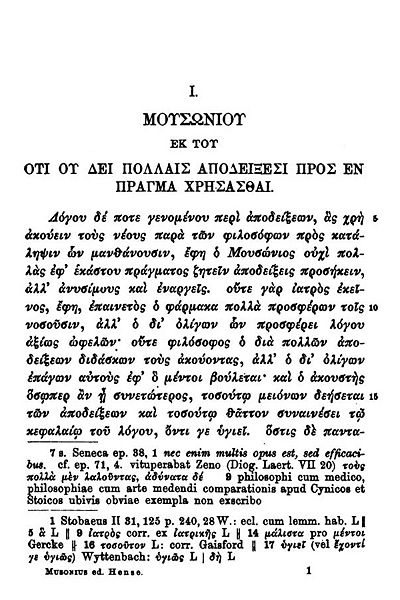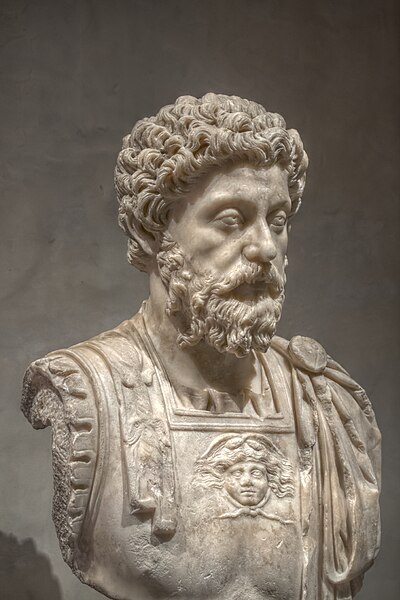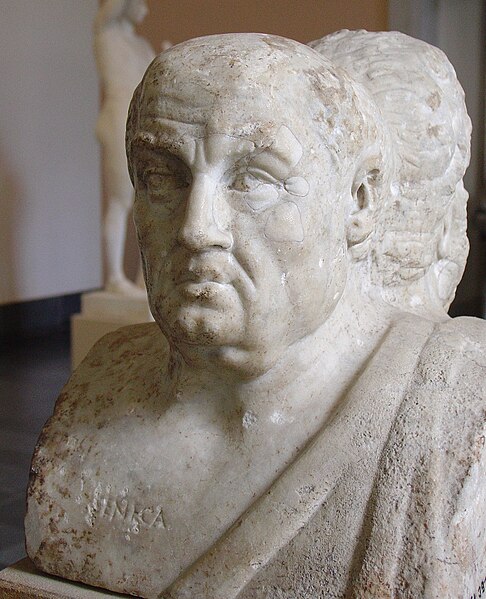Gaius Musonius Rufus was a Roman Stoic philosopher of the 1st century AD. He taught philosophy in Rome during the reign of Nero and so was sent into exile in 65 AD, returning to Rome only under Galba. He was allowed to stay in Rome when Vespasian banished all other philosophers from the city in 71 AD although he was eventually banished anyway, returning only after Vespasian's death. A collection of extracts from his lectures still survives. He is also remembered for being the teacher of Epictetus and Dio Chrysostom.
Chapter 1, page 1, of the works of Gaius Musonius Rufus, in Greek, edited by Otto Hense in the Teubner series, 1905.
Papyrus fragment P.Harr. I 1, showing a section of Discourse 15 of Gaius Musonius Rufus. 3rd century.
Stoicism is a school of Hellenistic philosophy that flourished in Ancient Greece and Ancient Rome. The Stoics believed that the practice of virtue is enough to achieve eudaimonia: a well-lived life. The Stoics identified the path to achieving it with a life spent practicing the four virtues in everyday life: wisdom, courage, temperance or moderation, and justice, and living in accordance with nature. It was founded in the ancient Agora of Athens by Zeno of Citium around 300 BC.
A bust of Zeno of Citium, considered the founder of Stoicism
Chrysippus, the third leader of the Stoic school, wrote over 300 books on logic. His works were lost, but an outline of his logical system can be reconstructed from fragments and testimony.
Marcus Aurelius, the Stoic Roman emperor
A bust of Seneca, a Stoic philosopher from the Roman empire who served as an adviser to Nero






